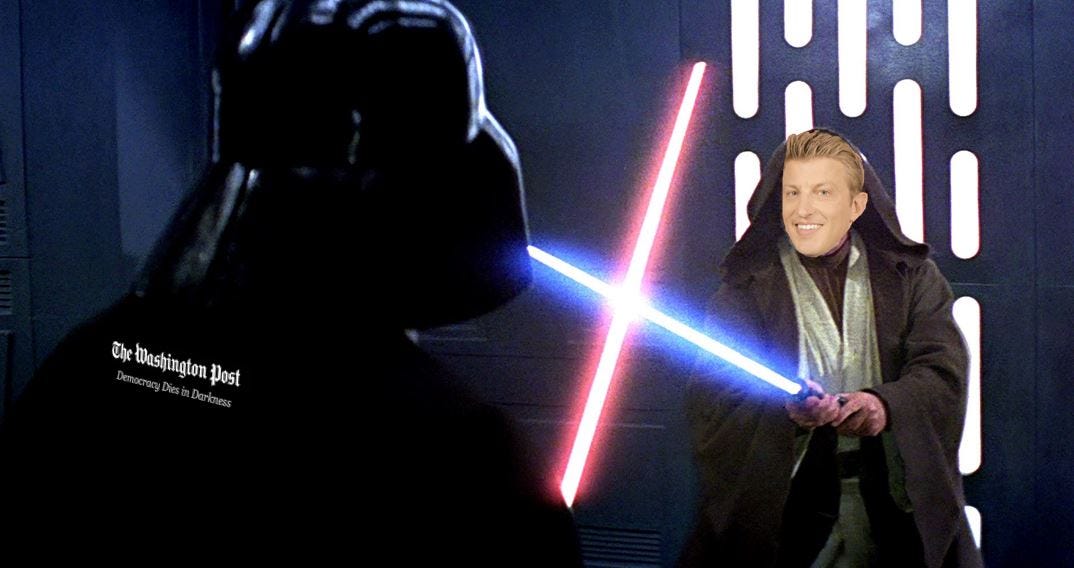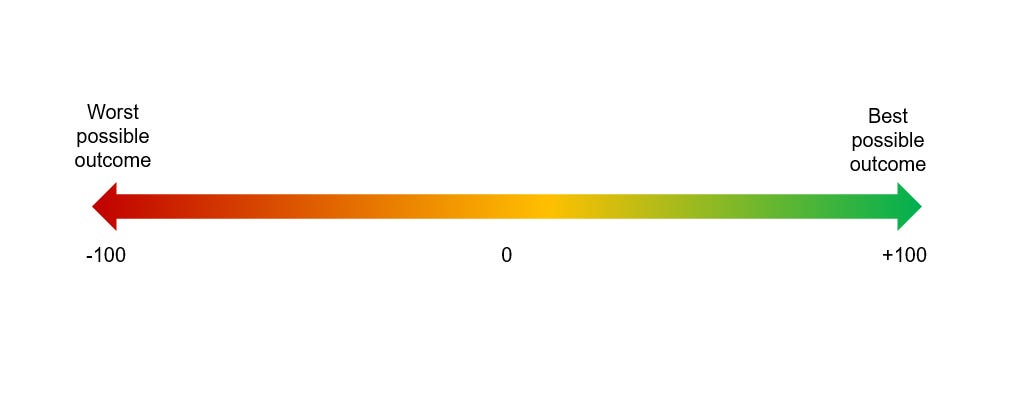Are You Open-Minded About the Energy Debate?
Alex Epstein's book Fossil Future re-frames the energy debate using a powerful persuasion technique...
‘We are facing a real energy catastrophe now in trying to prevent a hypothetical climate catastrophe tomorrow.’
Summary
‘Arguing to 100’ is a powerful way to frame a debate.
You demonstrate how your supported position moves you away from the worst and towards the best possible outcome.
The current energy debate is framed around the (apparent) moral goal of eliminating carbon dioxide.
Alex Epstein has turned the energy debate on it’s head, however, using his ‘Arguing to 100’ framework.
In hist latest book, Fossil Future, Epstein re-frames the energy debate in terms of human flourishing.
This enables all of the pro’s and con’s of fossil fuels to be considered, properly.
In this article I describe Epstein’s ‘Arguing to 100’ technique and how it can positively influence the energy policy debate.
‘Fossil Future’
While out now on general release, I was fortunate to be sent an advanced copy of Alex Epstein’s latest book, ‘Fossil Future’ earlier this year.
In a previous Atlas Report - Fossil Fuel Wars - I highlighted some of the controversy surrounding the book’s release.
Fossil Future makes the case that fossil fuels are a net good for humanity, and we should be looking to increase their use in the near-term. Epstein describes how he has successfully managed to use his ‘Arguing to 100’ framework to present a persuasive, pro-fossil fuel argument.

How to Argue to 100
Imagine a conversation set on a simple scale of -100 to +100. The worst possible outcome is -100, the best possible outcome +100.
When making your argument about a policy or set of policies, you continuously try to demonstrate how they will move you away from the -100 position and towards the +100 position.
A good example from popular culture was how Apple’s Steve Jobs re-framed the question; ‘which computer is best?’.
Original Framing: the worst technical performance (-100), and the best technical performance (+100)
Jobs’ Framing: worst user-experience (-100), and easy-to-use and powerful computing (+100).
How successful was this re-framing? It’s hard to put a number on it, but the fact that Apple is now the largest electronics company in the world isn’t by accident!
The Energy Debate
Epstein summarizes our current energy conversation as follows:
'It isn’t even really an energy conversation but rather a conversation about climate impact, where the +100 is eliminating CO2 emissions and the –100 is increasing CO2 emissions' Alex Epstein, Fossil Future, 2022
This is bad framing. It allows the anti-fossil fuel side to relentlessly attack our current energy system without having to consider the full consequences of their desired outcome, and retaining the moral high ground while doing so.
As Epstein points out, the framework was itself predicated on ‘distortions of reality’, namely:
CO2 emissions are causing climate apocalypse.
The value we get from fossil fuels today is trivial compared to its negative side- effects.
Any value we do get from fossil fuels can be rapidly replaced by renewable energy.
Accepting this distorted framework, fossil fuel advocates can only challenge the practicality of their opponents policies, while conceding (either implicitly or explicitly) the goal of CO2 elimination.
‘Accepting this framework removes your ability to 'argue to 100'. You are effectively left arguing to 0.’ Alex Epstein, Fossil Future, 2022
Even with logic and reasoning on your side, arguing to zero while your opponents aim for 100 is not persuasive.
Re-framing the Debate - It’s Ultimately about Human Flourishing
Epstein believes that re-framing the conversation is actually easier than many think.
By introducing 'human flourishing' into the ‘Arguing to 100’ framework Epstein turns the energy debate on it’s head. Maximizing human flourishing becomes the name of the game:
Is there anyone who wouldn’t wish to put the well-being of as many people as possible as an ultimate moral objective?
‘If you are open-minded enough to consider an alternative framework for discussing energy, then the debate makes much more sense; it becomes about which types of energy will allow the maximum amount of human flourishing.’
Applying this framework to the use of fossil fuels, we can now balance;
positive factors such as having access to plentiful and reliable energy, and what we know that means to human well-being, against
negative factors such as hypothetical future changes to the weather, and what that might mean to human well-being.
A Real Catastrophe Today vs A Hypothetical Catastrophe Tomorrow
Epstein reduces his case down to what he calls his ‘four fundamental truths’:
The uniquely cost- effective energy we get from fossil fuels makes the world an unnaturally livable place— including unnaturally safe from climate— for billions of people.
The world is still a barely livable place for billions of people who lack cost- effective energy.
No combination of alternatives, least of all unreliable solar and wind, can replace fossil fuels’ ability to provide cost- effective energy for the billions who have it and the billions who need it.
Fossil fuels’ CO2 emissions have contributed to and will continue to contribute to slow, masterable, and often beneficial warming as well as significant global greening— nothing resembling a crisis.
Whether you agree or not, these are precisely the types of issues that should be front-and-center when discussing energy policy.
We need to be open-minded enough to leave the a-priori ‘reduce CO2 at all costs’ framework behind.
We are facing a real energy catastrophe now in trying to prevent a hypothetical climate catastrophe tomorrow. Let’s at least frame the conversation properly.
-T






